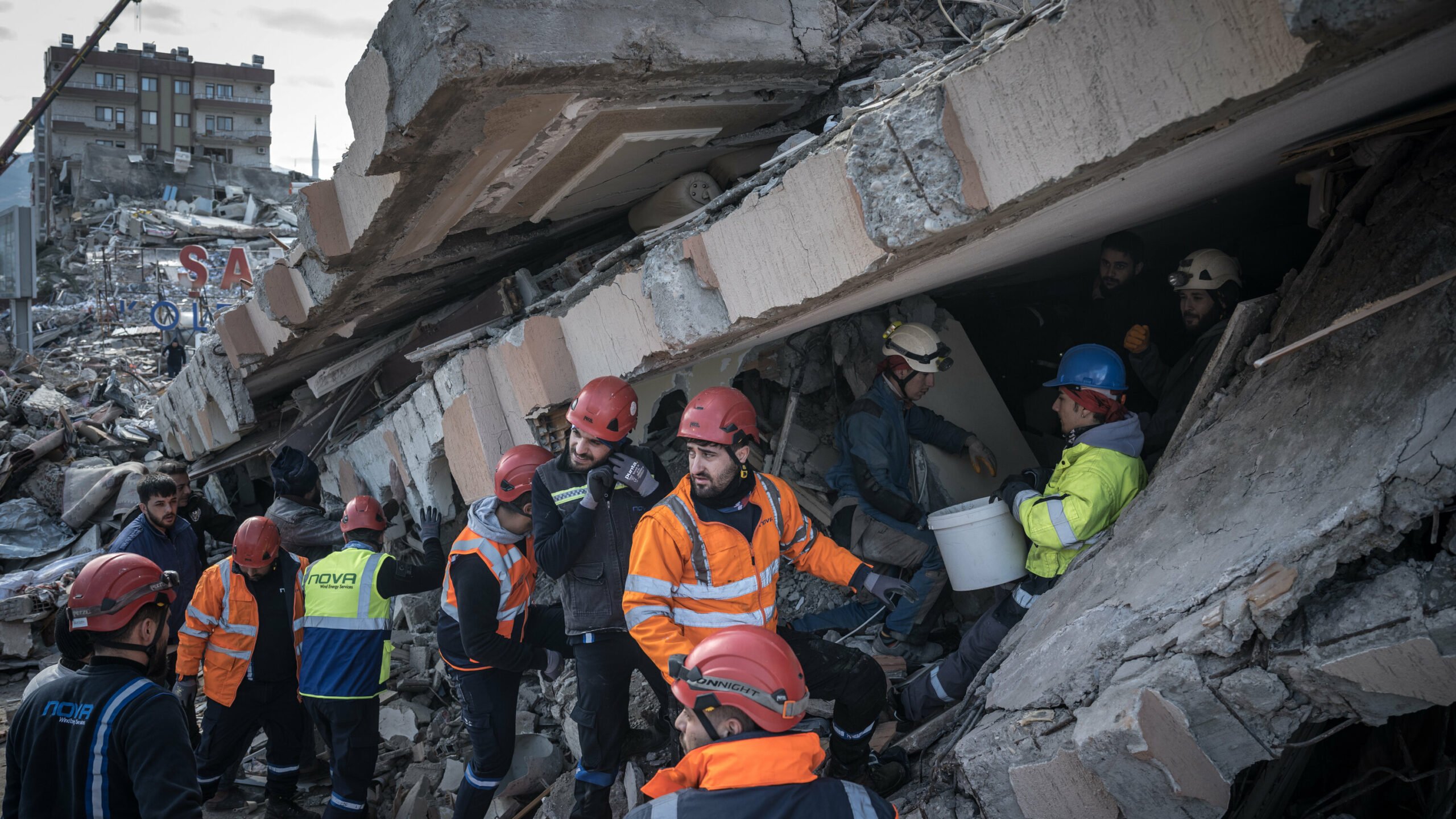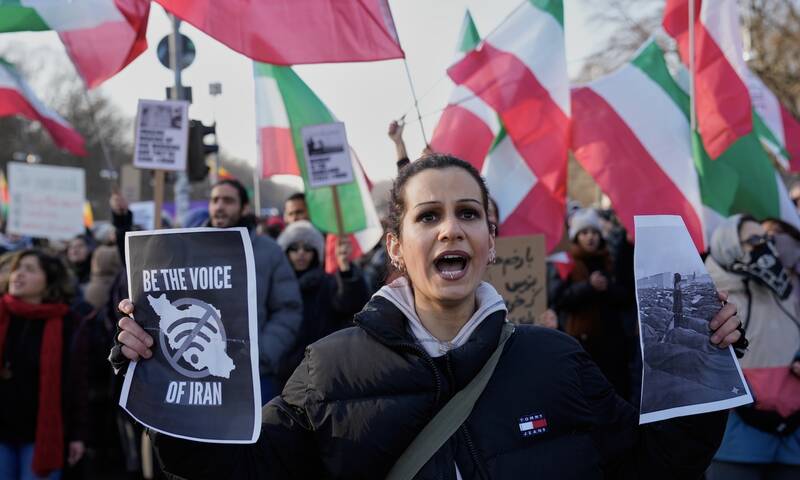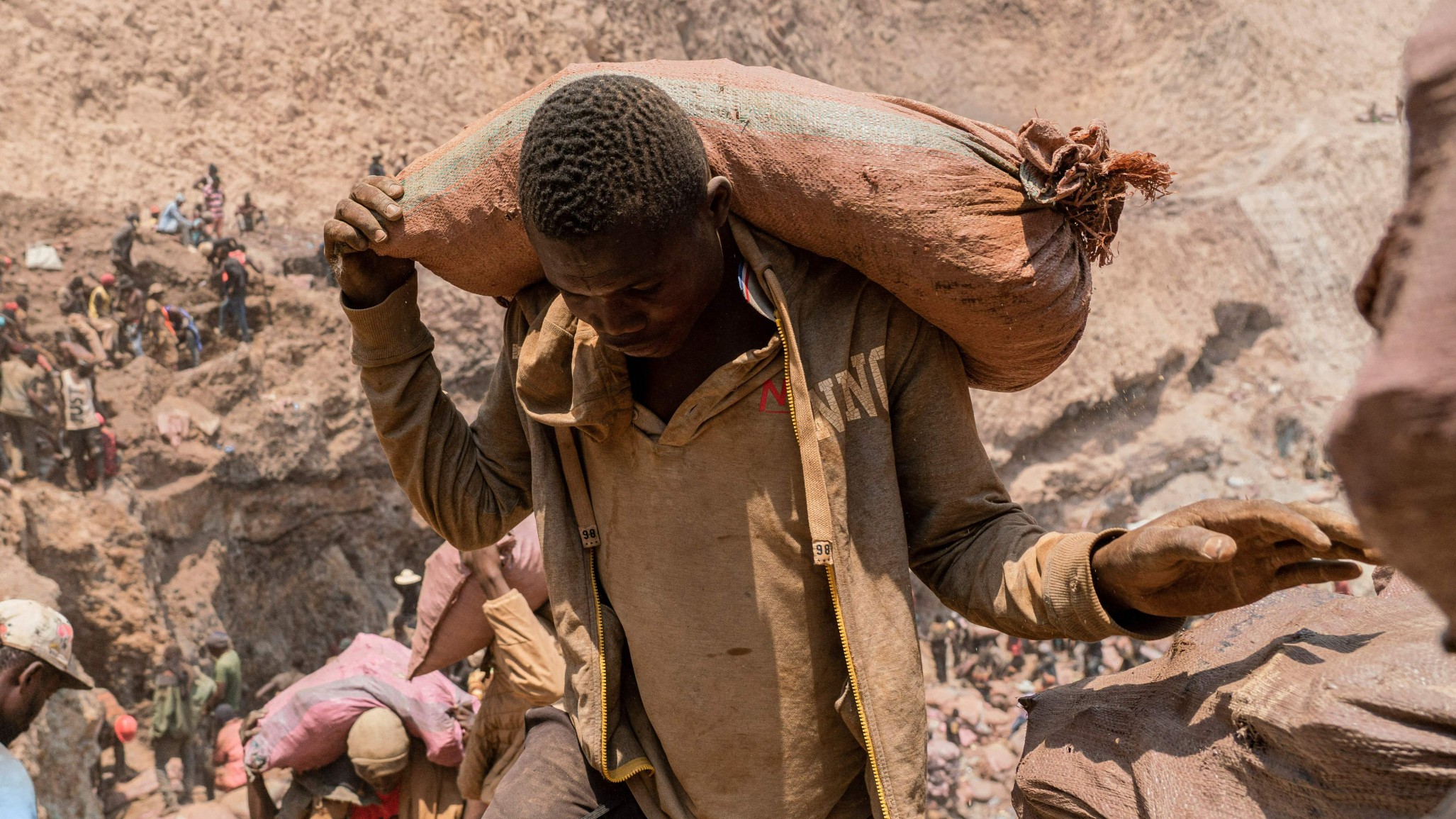On 6 February 2023, Turkey-Syria border saw a massive earthquake of profound geological significance, unfurling in its wake, tectonic destruction and dislocation in the region with the latest death toll, crossing the 40,000 mark. The scale of the disaster and its anomalous nature can be gauged from a historical analysis of such earthquakes in the region as well global data on the same. For starters, this was a region where the last earthquake of comparable proportions occurred 200 years ago, on 13 August 1822 with a magnitude of 7.4, significantly less than the first quake of 7.8 at 1:18 GMT on 6 February which was followed by an aftershock of 7.5 magnitude at 10:25 GMT on the same day.
“The heart wrenching images from the earthquake hit Turkiye- Syria reveal something far more unfortunate than the wrath of nature —how it is always the innocent people who end up bearing the brunt of sanctions. Little help has reached Syria owing to the sanctions slapped against the Assad regime, revealing yet again, how sanctions fail to discipline states while costing human lives. The common people do not just struggle at the hands of sanctions but also from the apathy of their own leaders. As seen in the case of Turkiye, many reports point to the Erdogan government’s inaction in ensuring relief supplies reach the people on time. The United Nations too has been a mute spectator.”
Cherry Hitkari, Non-Resident Vasey Fellow, Pacific Forum, Hawaii
The earthquake in its wake has brought to surface ethical questions about geo-political engagements, gendered ramifications of destruction unleashed by natural disasters and inferences of eco-anxiety in the affected area are made by those closely monitoring population movement post the earthquake.
Geopolitics, media coverage and the ethics of aid
In today’s day and age, where facts are products of opinions, you might not have registered in your first few reads that the Turkey-Syria earthquake, with its epicenter near Gaziantep on Turkey-Syria border, impacted both the countries at profound scale. In fact, if you are just a headline reader, and you were to follow the news at The Print , for instance, you would notice its nomenclature of the disaster, as the “Turkey Earthquake”. That Syria too was impacted at a massive scale is only inferrable when you read the bylines more closely. However, this nomenclature is not so much a reflection of the editorial stance per se but of broader geo-politics at play— US President, Joe Biden, in his press-interaction following the earthquake dilated on the US rescue and humanitarian efforts in Turkey, but Syria, only featured as an after-thought. It is only then expected that the global and Indian media attention on the issue may focus specifically from this borrowed lens.
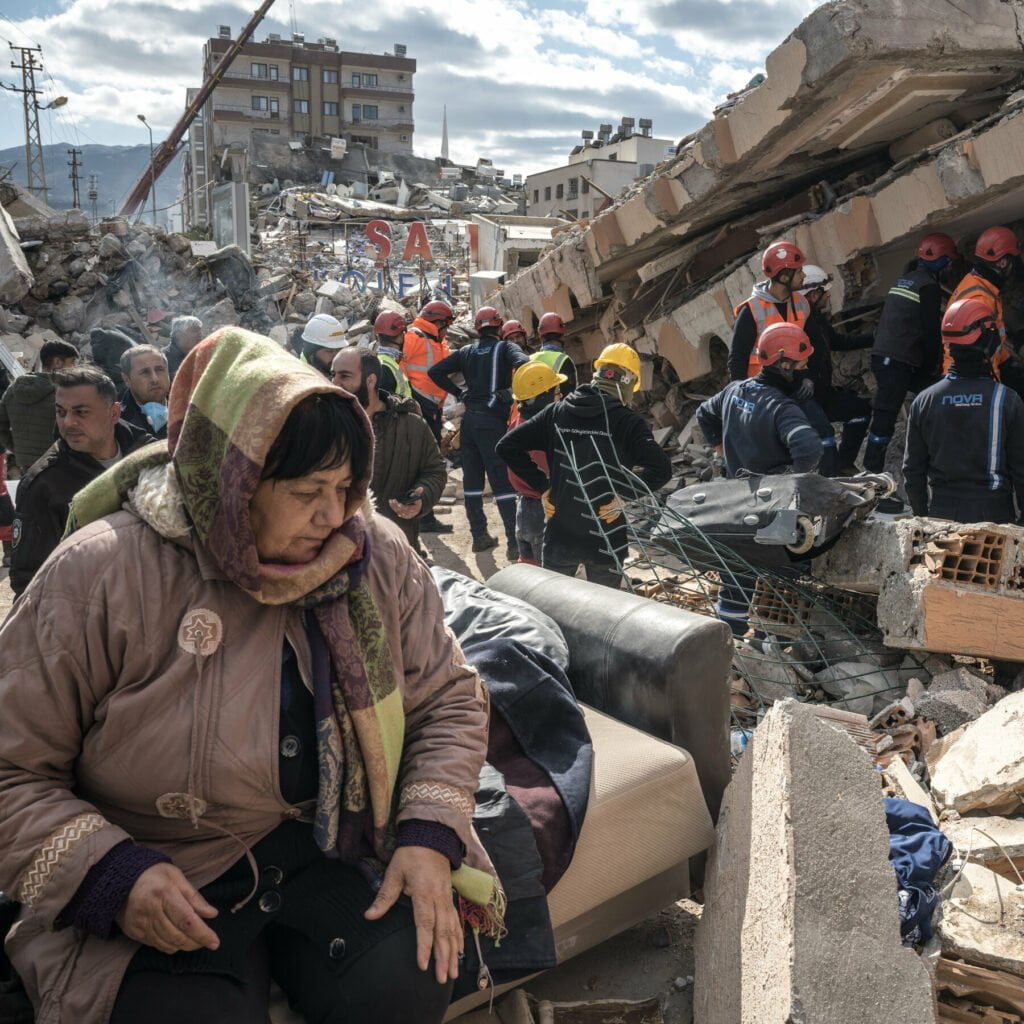
Biden’s limited engagement and the lack of West’s aid response to Syria, following the earthquake, viz a viz the overwhelming support received by Turkey is an extension of the West’s sanction against the Bashar al-Assad regime following the spillover of the 2011 Arab Spring. The 6 February earthquake has only added to a growing list of threats faced by the civilian Syrian population, which by most estimates is also deemed the world’s largest refugee population.
A 2022 report by the UN noted that more than 306,000 civilians were killed over the 10 years of the Syrian conflict. Guesstimates put the current loss of life post the earthquake in Syria alone at 6000 with the current earthquake being the largest natural disaster to strike the region in the last 200 years.
A 2022 report by the UN noted that more than 306,000 civilians were killed over the 10 years of the Syrian conflict. Guesstimates put the current loss of life post the earthquake in Syria alone at 6000 with the current earthquake being the largest natural disaster to strike the region in the last 200 years. The prevalent sanctions and the general apathy of the West, coupled with Syria’s ongoing struggle with a cholera outbreak has created the potential for a tectonic humanitarian crisis in the coming days as the full extent of damage unfurls.
In the first instance, according to the Commission of Inquiry on Syria, 14.6 million Syrians depend on humanitarian assistance, 12 million face acute food insecurity, and nine in 10 live below the poverty line. Added to this, between August 2022 and January 2023, almost 80,000 cases of Cholera have been suspected in the region. Against this background, the latest natural disaster will only serve to compound Syria’s struggle. The first case in point is the conjectured loss of life due to delayed search and rescue efforts due to Syria’s lack of resources coupled with inability to access global aid in view of its decade long struggle with sanctions.
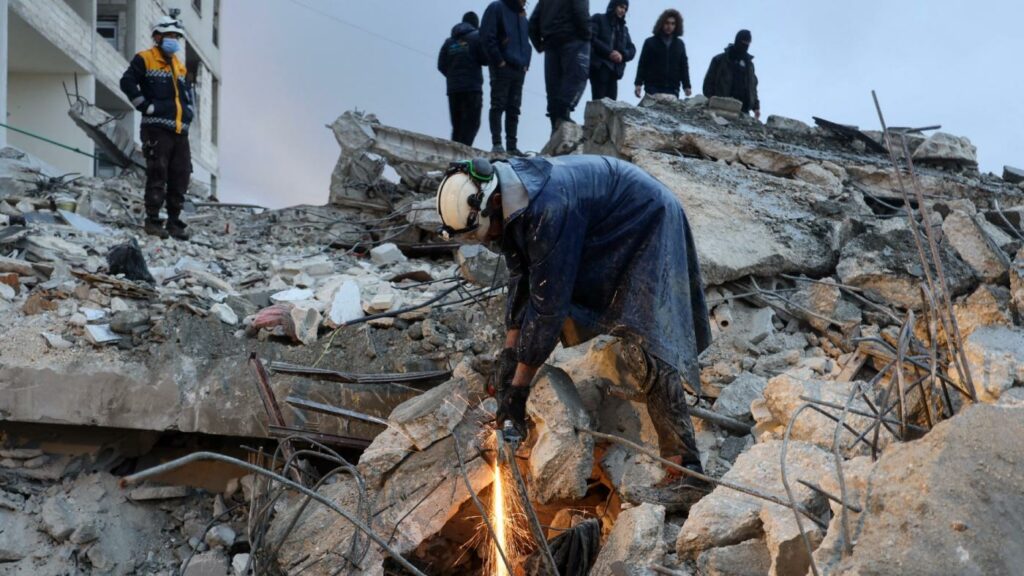
Showing the way forward and upholding the humanitarian values of aid and assistance in face of dire threats to survival, India has sent its aid under Operation Dost to both the countries. India’s efforts amidst the west’s lukewarm response to Syria is not only remarkable but a silent conjoinder that ethics of humanity triumph over politics of diplomacy. While the immediate focus rests upon search, rescue and rehabilitation efforts, sooner or later, the world will have to engage with some of these pressing ethical dilemmas as the full range of loss experienced by Syrians comes to the world-stage.
Also read: Natural Disasters And Their Gendered Impacts
Cherry Hitkari, Non-Resident Vasey Fellow, Pacific Forum, Hawaii, in a conversation with FII, noted “The heart wrenching images from the earthquake hit Turkiye- Syria reveal something far more unfortunate than the wrath of nature —how it is always the innocent people who end up bearing the brunt of sanctions. Little help has reached Syria owing to the sanctions slapped against the Assad regime, revealing yet again, how sanctions fail to discipline states while costing human lives. The common people do not just struggle at the hands of sanctions but also from the apathy of their own leaders. As seen in the case of Turkiye, many reports point to the Erdogan government’s inaction in ensuring relief supplies reach the people on time. The United Nations too has been a mute spectator.”
Gender, natural disasters and lessons for future resilience
The World Bank in its 2021 report has noted that while natural disasters are gender neutral , their impact is not. The report notes that disasters often reinforce gender inequalities resulting in differential impact outcomes for survivors. In fact a global study has noted that mortality tends to be higher for women than men in regions where women’s socio-economic status is deemed inferior to men.
One of the ways that women are at a disadvantage with respect to men is in their ability to access information and resources needed to adequately prepare, respond and cope to a disaster ─ including access to early warning and safe shelter, as well as to bank accounts to protect savings from disasters and stable income. The lack of access is shaped by prevalent gender norms and their performance and thus each disaster offsets a vicious cycle, where women are left worse off than men.
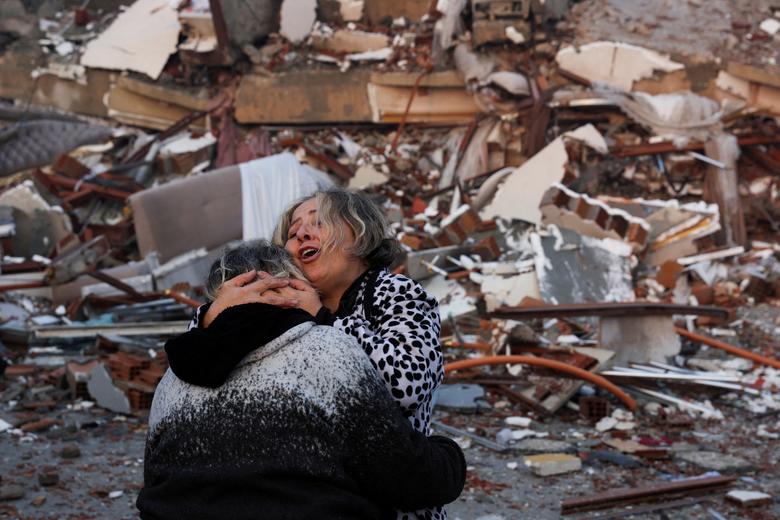
A close analysis of post-disaster outcomes for women shows that a gendered approach to disaster management is necessary at all-levels of disaster response. Take for instance the excess female deaths in Maharashtra Earthquake of 1993 or 2001 Gujarat Earthquake which saw greater mortality amongst women viz a viz men — the differential outcome was blamed on the fact that women normatively tend to stay indoors. Take another comparison, following the 2004 Indian Ocean Tsunami, 4 women died for every 1 man, in Aceh Indonesia; for Indonesian women normatively do not learn to climb trees or swim.
It is crucial that we engender data for both responding to the ongoing crisis as well as to curate gender-sensitive response policies for future disasters. The first step in this direction is obviously to curate disaggregated data on gender, age and place of habitation at the time of disaster of those impacted w.r.t both survivors and casualties. This would serve as a crucial starting point to understand the differential impact of a disaster in the immediacy.
Gendered narratives not only determine survival rates during a disaster but also outcomes post-it. Sushma Iyengar, a social educator who works in Gujarat, noted that during the 2001 disaster, “there was a much higher percentage of orthopedic injury—and a lot of people got spinally impaired. And among those who became paraplegic, a huge number were young women, because they happened to be inside their houses.” Iyengar noted that these women became more vulnerable to the risks of abandonment by their marital family, as the realities of their newly acquired status as “economically unproductive” and “biologically non-reproductive” women set in.
Also read: The Need To Acknowledge The Inter-Relationship Between Environment Crisis And Reproductive Rights
While disaggregated data from the Turkey-Syria disaster is yet to come in, based on the current experiences of those interviewed by rescue groups and historical evidence, it is clear that the impact of the disaster in these regions would be consistent with prevalent gender-norms. The most immediate of priorities post the earthquake are the 350,000 pregnancies in Syria and Turkey, which are at immediate risk, following the disaster, according to UN figures.
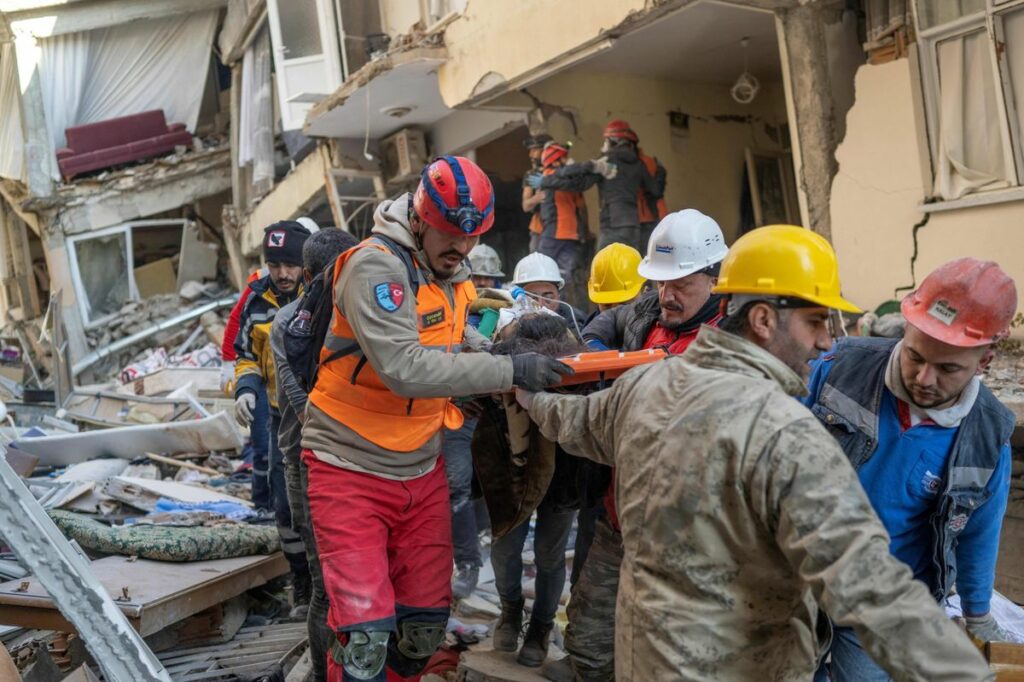
Syrian women, who were already at the end of their fighting rope, thanks to the singular burden of keeping shattered families together for the last twelve years, are the worst survivors of this casualty. According to the UN data, the number of women-headed households in Syria has increased by 80% since the war started as many men in the last decade were pushed out of the country, killed or maimed in the war .Infact, even prior to the war, 7 million Syrian women needed critical health services and support against physical and sexual violence. The burnout for Syrian women, who for the last decade have been operating on a constant survival mode is best captured in 43 year old Ayesha’s statement: “If hardships are a sign of the love of God, it means God really loves the Syrian people”.
Dealing with disasters : The way forward
It is crucial that we engender data for both responding to the ongoing crisis as well as to curate gender-sensitive response policies for future disasters. The first step in this direction is obviously to curate disaggregated data on gender, age and place of habitation at the time of disaster of those impacted w.r.t both survivors and casualties. This would serve as a crucial starting point to understand the differential impact of a disaster in the immediacy. A more longitudinal study should also focus on rehabilitation and recovery outcomes for all survivors along gendered lines, in order to finetune future efforts for more equitable outcome.
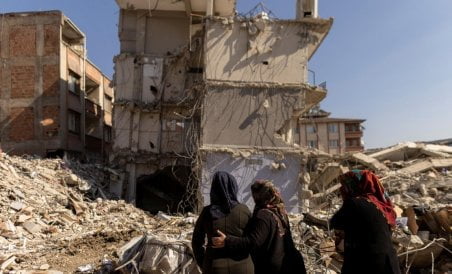
As crucial as it is for a more gender-sensitive approach at policy level, equally important is a diplomatic redirectioning and priority taking, one where human life’s cost takes priority over individual geopolitical ambitions.
About the author(s)
Harshita is a public policy consultant working at the intersection of gender, climate change, and disability. An alumna of Jesus and Mary College, University of Delhi, and the Institute of Development Studies, University of Sussex, her work draws on her training in History and Development Studies to unpack gender as a social and structural construct.
